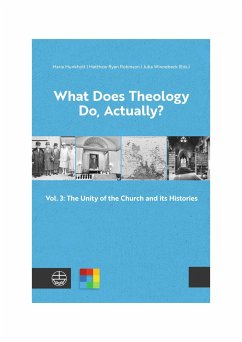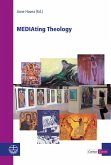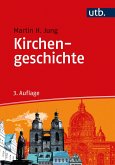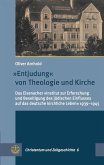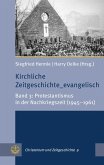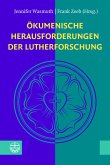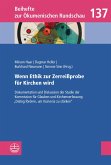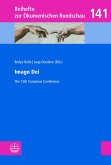This volume seeks to engage the seemingly irresolvable tension between the idea of a universal church and the particularity of Christian traditions from historical perspectives. In so doing, challenges arising from this tension related to confessional identity, belonging and acceptance take center stage. Building on the MESt's and WDTD Project's interests in the confessional and cultural diversity of approaches to work in the theological disciplines, WDTD3 will consider how the task and how work in the fields of History of Christianity and Church History is evolving as the participants and actors doing this work engage their field interculturally and in conversation with issues of contemporary global concern. [Was treibt Theologie eigentlich?]Der Band geht der scheinbar unauflösbaren Spannung zwischen der Idee einer universalen Kirche und der Partikularität der christlichen Traditionen aus geschichtswissenschaftlichen Perspektiven nach. Dabei stehen die Herausforderungen, die sich aus dieser Spannung in Bezug auf konfessionelle Identität, Zugehörigkeit und Akzeptanz ergeben, im Mittelpunkt. Aufbauend auf dem Interesse des »What Does Theology Do, Actually?«-Projekts an der konfessionellen und kulturellen Vielfalt der Arbeitsansätze in den theologischen Disziplinen untersucht dieser dritte Band, wie sich die Aufgabe und die Arbeit in den Bereichen Kirchengeschichte bzw. History of Christianity entwickeln, wenn die Teilnehmer und Wissenschaftler, die diese Arbeit leisten, ihr Fachgebiet interkulturell und im Gespräch mit Themen von zeitgenössischer globaler Bedeutung betrachten.

